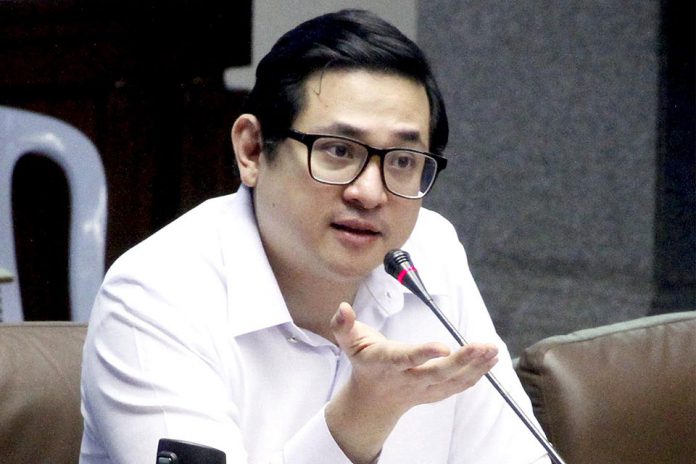
MANILA – Opposition Sen. Paolo Benigno Aquino IV has reiterated his call for the suspension of the Tax Reform for Acceleration and Inclusion (TRAIN) Law amid the doubling of the country’s inflation rate in a span of one year.
“Malinaw ang mensahe ng 5.2 percent na inflation rate. Kailangan nang i-preno ang TRAIN sa lalong madaling panahon dahil nalulunod na sa taas presyo ang taumbayan,” Aquino said in a press statement.
From 2.5 percent in June 2017, the country’s inflation rate went up to 5.2 in June 2018, based on the latest report by the Philippine Statistics Authority (PSA).
It was the fastest increase in at least five years, surpassing the projection by the country’s economic managers.
The Department of Finance (DOF) predicted a 4.9-percent inflation rate, while Bangko Sentral ng Pilipinas projected that it would settle withing the 4.3 to 5.1 percent range.
Aquino has been pushing for the suspension and rollback of the excise tax on fuel under the TRAIN Law to ease the burden on the public caused by rising prices of goods and services.
He has also submitted a bill seeking to suspend and roll back TRAIN’s excise tax on fuel once the average inflation rate surpasses the annual inflation target over a three-month period.
Weak peso
Senator Panfilo Lacson said the government should revisit the implementation of TRAIN.
“Dapat pag-aralan. Dapat i-revisit ang TRAIN. Sa akin nakita kong pinakamalaki sa excise tax. Halu-halo ‘yan, oil price, world price ng oil, peso-dollar exchange rate. Pero malaking epekto rin ang dinagdagan mo pa ang tax ang fuel, e ang daming gumagamit ng krudo, maski sa kuryente may component na krudo,” he said at the weekly Kapihan sa Senado.
“May epekto [ang TRAIN Law]. Ang unang epekto sa excise tax ng fuel dahil lahat may tama. Nagkaroon ng inflation, sa 5.2% na tayo,” he added.
He added that the government should review its projection.
“From 2.4 to 4 percent na projection ng DBCC [Development Budget Coordination Committee], we’re now at 5.2 percent. So ang gobyerno dapat i-review ang kanilang projection,” he said.
He also criticized Budget secretary Benjamin Diokno for saying that a weak peso is not bad for the country.
“Look at this, in July 2016, ang peso-dollar rate P47.03 to $1. Ngayon sa P53.4 tayo. There’s a difference of P6.1. Ang offshore debt natin sa $73 billion. Pag consider mo sa exchange rate, ang weakness ng peso right away nag-increase babayaran natin ng P446 billion. Kasi wala tayong ginagawa pa pero dahil nabawasan ang value ng peso in two years ng P6.1, pag multiply mo sa $73 billion na utang natin offshore, dollar-denominated, nadagdagan agad ang utang natin ng P445.9 billion. So hindi ba masama sa economy ang weak peso?” he asked.
“Tapos sa manufacturing sector, saan galing ang mga raw materials? ‘Di ba import natin? So it’s bad for the Philippine economy. It is wrong to say it is not bad for the Philippines,” said Lacson. (GMA News)



